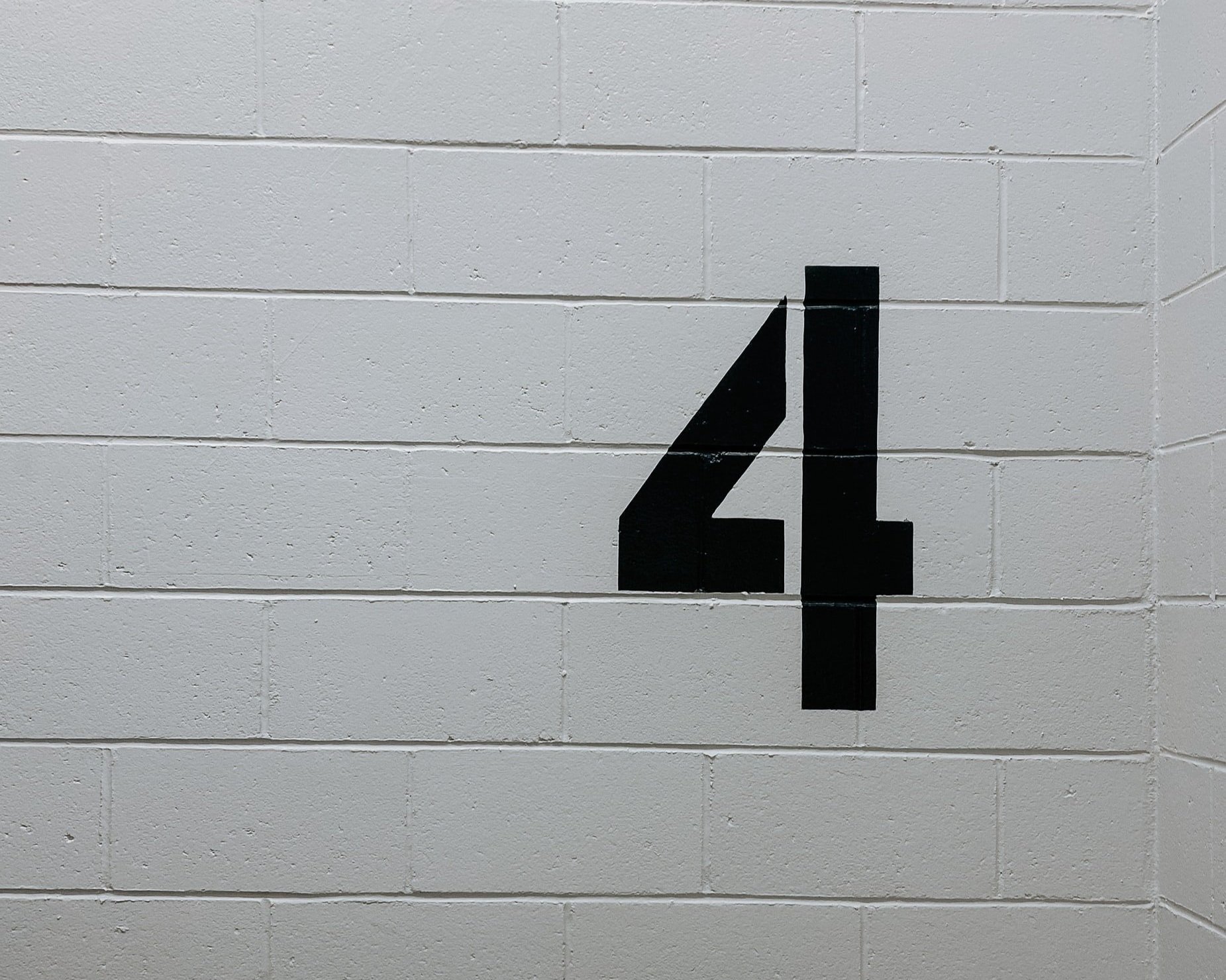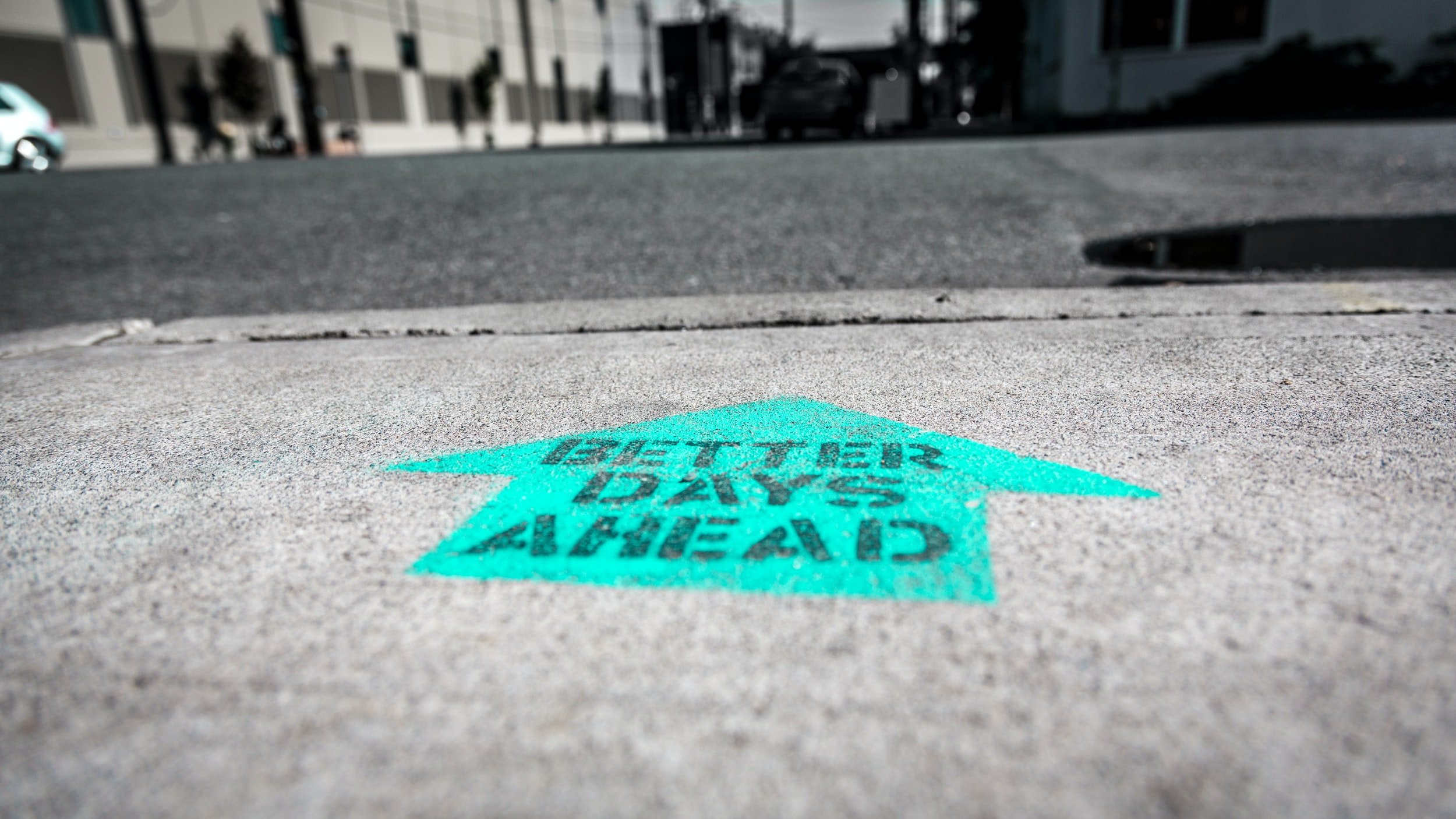Four Years
It’s been four years
It was four years ago today that miscarriage first became a part of my life.
That’s 208 long weeks, or exactly 1460 days of living with this present reality.
Hoping. Waiting. Wondering. Praying.
Gaining. Losing. Grieving.
Taking Tests. Seeking answers.
Giving Up. Finding fresh courage.
Trying again.
Holding on. Then letting go…
How it all began
It was 1st December 2017 when I first noticed some small signs of spotting about 7 weeks into my second pregnancy.
I thought nothing of it at first. I’d had some spotting with my first son Ben too during the first trimester, and everything was fine…
Only this time, after a couple of days or so, it didn’t pass. It became more pronounced instead.
And somewhat shockingly to me at the time, it continued to progress throughout the whole of the Christmas period and right on into the new year. That little life bled out of me for 28 consecutive days.
It was a devastating experience, both physically and emotionally - and you can read more about that chapter of my story here.
‘Moving on’
By the time the new year rang in, I was more than ready to move on with the next chapter of our story.
At that time, miscarriage mostly just felt like a nasty but temporary interruption to my plans. It was disappointing for sure, but I fully expected that my body would quickly heal, and my life would soon move on.
After all, in the days and weeks that follow a miscarriage that’s pretty much all you’re told by everyone: “It’s very common. It happens to 1 in 4 pregnancies. And mostly, we don’t know why. But no need to worry. It’s just one of those things…”
Friends, family, work colleagues, neighbours, GP, midwives, sonographers, strangers in waiting rooms; everyone said the same thing. And I really had no reason to believe otherwise at all.
Trying again
Throughout my recovery from what felt like the world’s slowest miscarriage, I was honestly just counting down the days until I could fall pregnant again.
Because isn’t that the obvious solution? When you’ve just lost a pregnancy, another pregnancy feels like the only real ‘fix’.
But what no one really tells you at the time is that it’s not possible to just replace a pregnancy; even if other children follow, you will always wonder about that little one you lost. What if things had turned out differently? Who might they have grown up to be?
Another thing that no one really mentions is that pregnancy after loss is never an easy thing; every day feels like living on a knife edge. Will you actually get to hold this baby? Or could it all goes wrong again?
Most of all, what absolutely no one ever says at all is that it actually could go wrong again. And for 1 in 100 particularly unlucky mums like me, it will go wrong again and again…
Four years later
I never expected to get stuck here in this recurrent miscarriage story I’m in. Not in a million years.
But somewhere along the way, what started as a temporary pause in our story turned into a permanent stop.
And yet even now, I can’t exactly pinpoint the exact moment it all went sideways. Was it when the second miscarriage started? Was it the first time I spoke to a consultant about being referred to a recurrent loss clinic? Was it hitting 40 and being rendered too old to get pregnant again. I honestly don’t know…
Recurrent miscarriage and infertility can be such a slow, silent, creeping sort of problem, with no clear starting point and no neat conclusion or ending point at all.
Sometimes it resolves itself, and sometimes it doesn’t. Sometimes you get answers, but often you don’t. And sometimes, like me, you just run out of time before you get to a cure…
Here we are
So here I am at the start of December 2021, marking the fourth anniversary of that first Christmas-time loss, and suprisingly little has changed.
I thought that by now, I’d be looking back with the benefit of hindsight - either holding our rainbow baby, or at very least understanding that everything happens for a reason, and that God had a better plan…
But the truth is that we’re in neither camp, and its disappointing to have to admit how little meaning or purpose I can retrieve from the rubble.
I thought closure would look like having resolution, or at very least having some answers to the big spiritual questions that loss can leave - but how sad and pointless it all still feels….
Instead, I find myself packing up & giving the last of our baby stuff away with no real sense of peace at all. And even though it’s been a good six years since I last held a baby that I bore in my arms, and two and a half years since I last carried a baby in my womb (you can read more about my last miscarriage here) it still feels like a wrench on my heart.
Perhaps the strangest thing about parenting is that it warps all sense of normal time; the days often move so slowly, but the years slip by incredibly fast. Especially if you only get to do it all one time round.
And I’ve found that what’s true of the babies you get to raise, is also equally true of the babies you never get to hold too. Grief after miscarriage tends to be a strange mix of life moving on quite quickly, but also a long slow process of letting go and healing inside.
But perhaps the hardest part of processing our pain is that it disrupts the false narrative that so many of us believe - the idea that if we just live a good and faithful life, everything will turn out alright. But that’s gospel, that’s a christian version of karma and is a false security.
Where to next?
For me, recurrent miscarriage hasn’t just been the death of three of my pregnancies, it’s also been the death of some of my hopes and dreams for my motherhood and family.
The author, Norma Cousins once wrote this about the process of grief: “Death is not the greatest loss in life. The greatest loss is what dies inside us while we continue to live.”
And I think that’s really true, but it’s also really hard to grieve and to ‘move on’ with life, when your loss is so culturally ambiguous and ill-defined.
In early miscarriages particularly, there’s no body, no funeral, and sometimes there’s nothing to formally recognise that the life you mourn ever existed at all. Often all a parent holds is an early scan photo at best, whilst with failed ivf rounds or infertility and childlessness, all a couple has to mourn is the loss of the seed of an idea of life.
And to make matters even harder, no one will ever actually tell you when it’s all over, because no one can really know that for sure. Not you, your body, your partner, your friends, not the sonographers, not the consultants, and definitely not your heart…
5 Tips for Moving Forwards
So how do you begin to grieve, find closure and move forwards from what is arguably the hardest, messiest type of grief of all?
Honestly, I don’t have all the answers. It’s something I feel like I’m still working through day and day. But here are a few of the ideas that have helped…
Take time to grieve
It’s so important that you take time to grieve those losses that you’ve felt in your motherhood journey - and not just biological losses, but also the emotional losses too. If infertility or miscarriage stole away the kind of motherhood you hoped for, it’s important to acknowledge the disappointment and loss.
Don’t be too eager to rush past those feelings too quickly - name them, mark them, journal about them, find a support group or talk to a counsellor or friend.
Take as long as you need. Don’t let anyone rush you, or tell you when you should be ‘over it’. For what its worth, I don’t think ‘over it’ is really even a thing; I think we just learn to adapt and adjust our expectations and to live with our losses.
2. Acknowledge the imperfect
Whether you have had a birth child who remains an only child like me, you have chosen to build a family through other means such as adoption or fostering, you’ve decided to remain childless, or you’re still very much in limbo and weighing up the options right now… it’s important to acknowledge the imperfectness of the present.
Often we can think we have to wrap everything up in positivity and not sound ungrateful, especially as Christians. But don’t apologise or feel guilty if you have mixed feelings about your present. It’s okay to hold both the pain and the joy together. You don’t need to pretend that everything is neat or healed when it’s not.
Try not to think of your story as an either/or scenario. Life tends to require much more of a both/and approach. I am both incredibly grateful for my only son, and incredibly sad about my losses. Acceptance of the present is the only place from which healing is found. You can’t move forwards into what is next, apart from by first being where you are now…
3. Try to maintain perspective
As a society, we tend to idolise motherhood. A lot of life revolves around it when you reach a certain age, and culturally we don’t really know what to do with women who exist outside of this cultural norm (whether by choice or not).
What’s more, in a lot of babyloss and infertility circles I’ve encountered, the idea of having a child (or a rainbow baby) can end up becoming an unhealthy fixation. But when we fixate on wanting one thing too much, we can start to see everyone else’s life through rose-tinted glasses and believe that if only we had that one thing - then everything would be fine.
Of course, the truth is much more nuanced. Very few things in life are as black/white as to be all good or bad. Most things in life are a lot of both, including having a family. Of course, infertility is a heart-breaking experience, but motherhood also comes loaded with all kinds of disappointments and heartaches too. Nothing is ever perfect in this broken, imperfect world…
4. Hold space for ambiguity
Those who live with infertility, get used to living with that sense of being in constant limbo. By this time next year, we could have a baby… or not. Do we book that holiday abroad… or not? Do we keep that money back in case we need ivf ? Do we keep those old baby clothes just in case? And on, and on, it goes…
The list of pending decisions can feel endless, and the reality is that wherever you are on this journey, some degree of ambiguity about the future remains inevitable. So try to hold it all lightly in hand. Don’t plan for a/another baby or continue to put parts of your life on hold indefinitely, but never say never either. Tightly clenched fists can’t receive anything new at all.
5. Be open to new things
Here’s a question to finish with: What if the best in life is still yet to come?
I know that after a long season of loss and grief and disappointment that can feel incredibly unlikely. But it may just also be true. So try being open to new adventures, new challenges, new dreams, and new paths as yet untravelled in both big and little ways.
Subscribe to Notes On Life
Sign up via my substack to receive new blog posts straight to your inbox.




